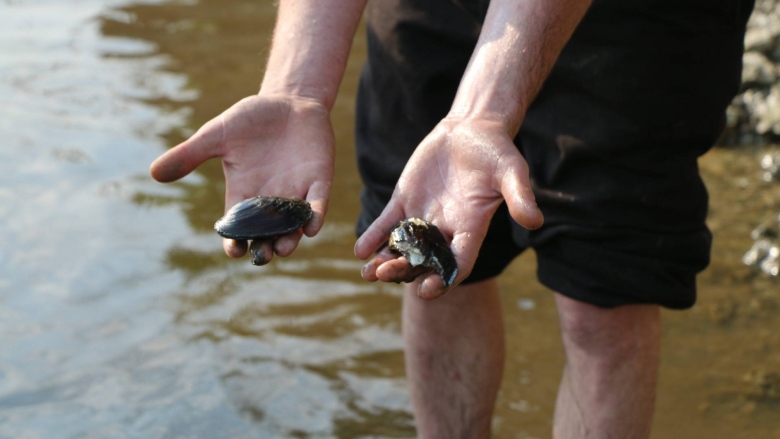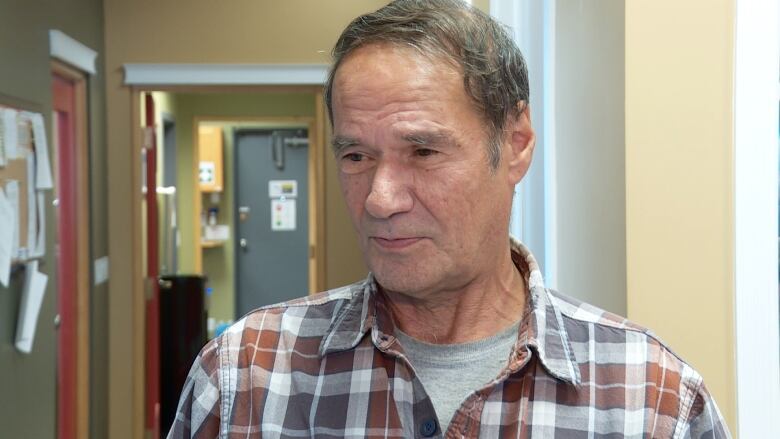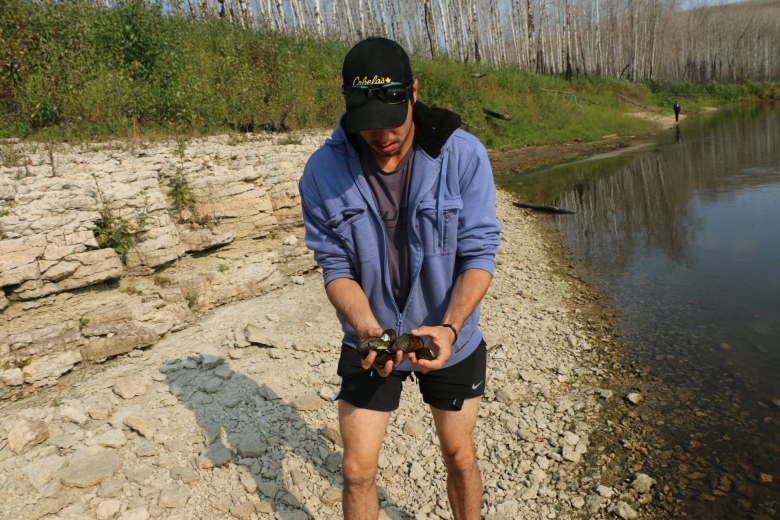Fort McMurray Mtis and government study health of 'disappearing' freshwater clams
My only assumption is that it has got to be something in the waters says Mtis elder

Harvey Sykes remembers when he was a child and his father would toss freshwater clams fished from Fort McMurray's two rivers into a pot of fish chowder.
Today, he can hardly find any when he goes out on the water.
"Back in those days, there was an abundance of clams," said Sykes. "It seems now they are disappearing at an alarming rate."
- Mtis elder won't cut his hair until Alberta respects Mtis rights
- Proposed oilsands mine gets support from Fort McMurray Mtis, four other Indigenous groups
Sykes, aMcMurray Mtisboard member and elder,tells stories about walking along the Clearwater or the Athabasca rivers and kicking clamshells scattered on the shore. They were everywhere then. Finding one these days is like finding buried treasure.

The McMurray Mtis and Alberta Environment and Parks partnered 10 months ago to start the first community-led study of freshwater clams. On Friday, the two groups will hold an information session to update members on their progress.
Sykes said he has been warning government and wildlife researchers for almost a decade that the region's clams are disappearing.
Where did the clams go?
Clams can be found throughout Alberta.
Alberta Environment and Parks scientist Debra Hopkins said a species commonly called "fat muckets" are found in Fort McMurray.
Project participants wereout on the water in August and September searching for clams and taking samples back to the lab.

"It was hard to find clams," said Hopkins, who could barely fill a bucket. "We spent four full days out on the rivers."
The study is using traditional knowledge to map areas where clams were once found in abundance. They takesamples back to a lab to analyse animals'overall health. It will also assess the water and sediment quality.
There's no date for the study's completion, nor are thereany early results to give Sykes comfort.
"My only assumption is that it has got to be something in the waters is why they are disappearing," Sykes said.
Follow David Thurton, CBC'sFort McMurraycorrespondent, onFacebook,Twitteror contact him viaemail.












_(720p).jpg)


 OFFICIAL HD MUSIC VIDEO.jpg)
.jpg)



























































































